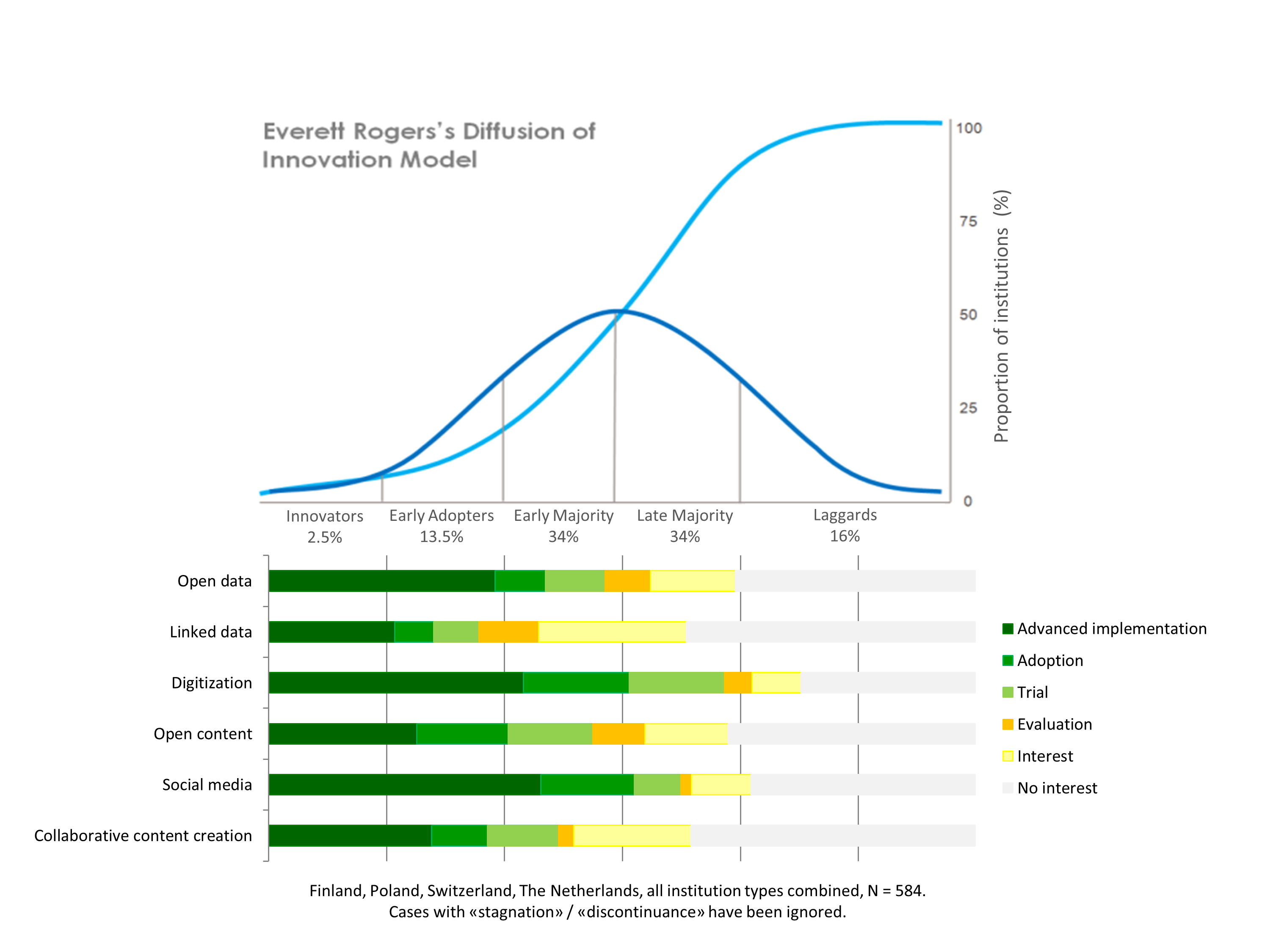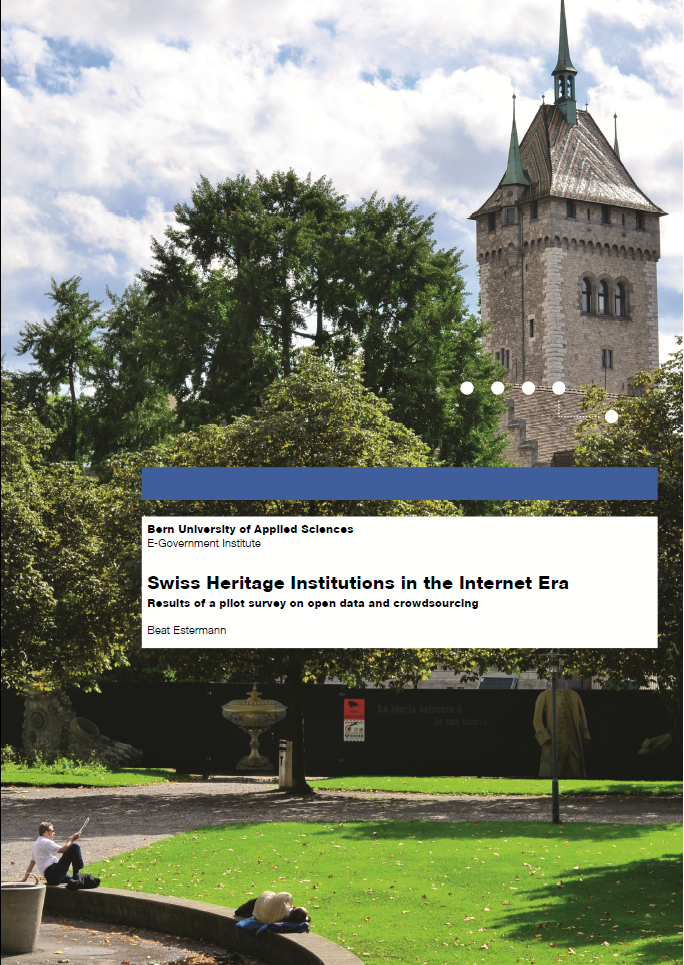The OpenGLAM Benchmark Survey is an online survey that has been conducted among heritage institutions throughout the world during 2014-2016.
The main purposes of the survey are to:
- Measure the state of advancement of OpenGLAM (digitization, inter-organisational cooperation involving the exchange of metadata, open data, crowdsourcing, linked data) in the participating countries and to identify the main challenges and obstacles with regard to the promotion of OpenGLAM and free access to knowledge.
- Inform the GLAM community about the latest developments in the area of OpenGLAM and relate them to the state of advancement of OpenGLAM in their country.
- Identify potential partners for open data and/or crowdsourcing projects (R&D projects, GLAM-Wiki cooperations, open cultural data hackathons, consulting mandates, etc.)
- Use the study report as a communication instrument to promote OpenGLAM within the local GLAM community and related sectors.
- Use the study report as an instrument for lobbying activities in favour of OpenGLAM and the advancement of free knowledge.
In addition, the international benchmark study provides international comparisons, which:
- Allow each country to see where it stands compared to other countries.
- Provide the international OpenGLAM community with a tool that helps it to better understand the particularities of each country, to put insights gained in a country into a broader perspective, and to better adapt strategies and best practices to the specific situation of each country.
 Results for Switzerland
Results for Switzerland
Data collection among Swiss heritage institutions has taken place in May/June 2015. So far, several articles have been published which are (also) based on Swiss data:
- Estermann, Beat (2015) Diffusion of Open Data and Crowdsourcing among Heritage Institutions. Based on data from Finland, Poland, Switzerland, and The Netherlands. Paper Presented at the EGPA 2015 Conference, held on 26-28 August 2015 in Toulouse, France. (Presentation).
- Estermann, Beat (2015) Open data et crowdsourcing: un état des lieux du point de vue des musées. La Lettre de l’OCIM, n°162, novembre-décembre 2015.
- Estermann, Beat (2016) „OpenGLAM“ – Der neue Trend unter den Gedächtnisinstitutionen. Bibliotheksdienst 2016; 50(1): 137–140.
Data and Frequency Analyses for Download
The survey data, along with some standard frequency analyses, is available for download on the project page.
Swiss Pilot Survey
The OpenGLAM Benchmark Survey had been inspired by an earlier pilot survey carried out among Swiss heritage institutions by the Bern University of Applied Sciences in fall 2012. The survey report has been published in German and in English:
- Estermann Beat (2013) : Schweizer Gedächtnisinstitutionen im Internet-Zeitalter. Ergebnisse einer Pilotbefragung zu den Themenbereichen Open Data und Crowdsourcing, Berner Fachhochschule, E-Government-Institut.
- Estermann Beat (2013) : Swiss Heritage Institutions in the Internet Era. Results of a pilot survey on open data and crowdsourcing, Bern University of Applied Sciences, E-Government Institute.




